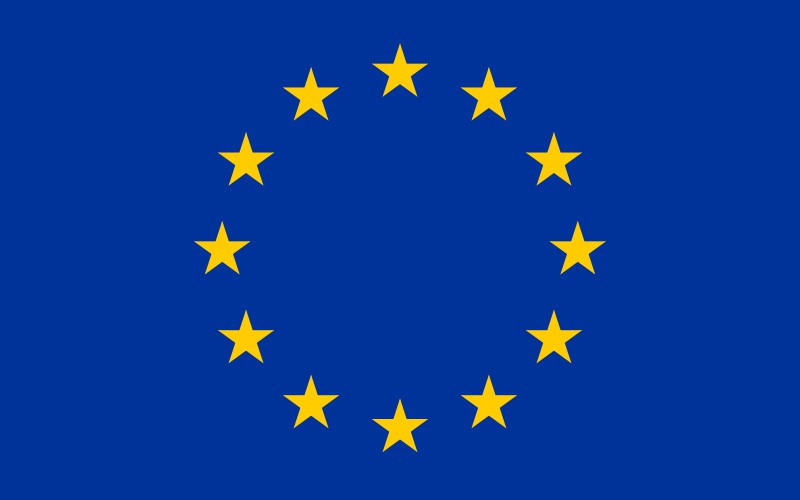Puntland: A fresh approach to targeting piracy
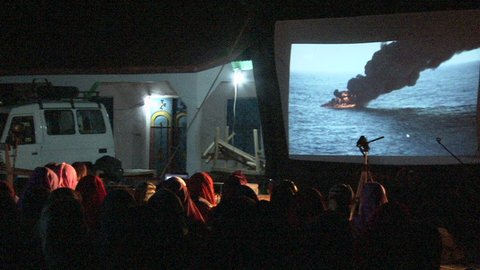
Somali pirates hijacking cargo ships have been making the international headlines as the international shipping route passing the Horn of Africa has become increasingly dangerous.
This has prompted the international community to send military vessels to the waters of the Gulf of Aden. And now patrolling the shores are navy ships sent by the European Union and others.
An innovative counter-piracy strategy
These international responses have a military approach to what is primarily an economic problem. Interpeace’s local partner in Puntland, the region where many Somali pirates are recruited, has launched an awareness campaign to tackle the root causes of piracy in the region.
The drivers behind piracy
The reasons why young Somali men take to piracy are complex, rooted in economic hardships, changing cultural norms and governance challenges. The absence of a functioning central government for the Somali Region has given rise to illegal fishing and maritime pollution of its coastal waters. This in turn is making it increasingly difficult for traditional fishermen to catch enough fish to make ends meet. Recent changes in taxation and environmental protection laws have also been identified as a contributing factor. Though the level of pirate attacks has recently declined, many young men still decide to join pirate groups, as piracy is a lucrative source of income when successful.
Targeting hotspot communities
Interpeace’s partner, the Puntland Development Research Center (PDRC), has come up with an innovative approach to tackle the problem. Its Mobile Audio-Visual team travelled to communities along the Somali coast that are potential hotspots for pirate activity and recruitment. Thousands of people watched a 20 minute film created for the counter-piracy campaign. It is shown on an inflatable screen so making it possible to have the film as the flagship event of the counter-piracy roadshow.
Sharing the harsh realities of a pirate’s life
Specifically targeting young people, key messages highlight the dangers and risks of piracy to the Somali communities as well as further afield. Clips of pirates being apprehended and tried in international courts brings some of the downsides of a pirate’s life back to the communities. Short drama sections showing the negative impact of piracy on women and young people also highlight some of the other harsh realities of piracy.
Abdinasir M. Yusuf, PDRC’s Mobile Audio-Visual Unit Researcher explains: “It was impressive to see the impact the film had on the audience. After the screening, mothers and fathers stood up publicly and called upon their sons to never participate in piracy activities. In another village, a poet stepped forth and called upon the youth attending the session not to engage in piracy. These are very rewarding moments because you know you succeeded in getting your message across.”
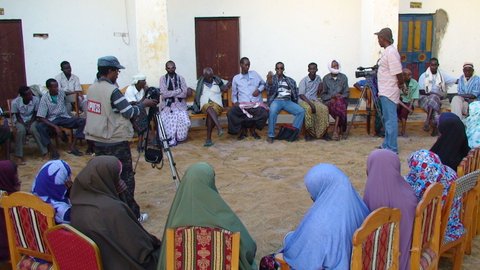 Photo credit: PDRC |
“Dolphins are followed by sharks”
The overall campaign was seen to be a huge success. High interest, many questions and vivid discussions followed the public events. Besides film screenings, the public outreach campaign also made use of flyers, radio shows and workshops to raise awareness of the harsh consequences of piracy. More than 240 participants came together in educational forums to discuss the impacts of piracy on the economic and security situation in coastal communities. Over 700 stickers and posters featured anti-piracy messages using phrases and language developed by the local team to resonate with the communities they were visiting. Here is an example using Somali coastal proverbs: “Dolphins are followed by sharks; Piracy leads to disaster.”
A challenging security situation
Abdinasir highlights the difficulties the team was facing when travelling to the remote coastal villages: “One of the challenges we were facing when conducting the campaign was simply the distances we had to cover to reach out to remote areas. Our team travelled more than 2,000 km on roads that are in very poor condition or non-existent. But it was important for us to reach out to those who are usually left out but live in those strategic village communities near or on the coast.” But despite the security challenges Abdinasir concluded: “We know that our work is important and that we are on the right track.”
Made possible with the support of the European Commission and the contributions from DANIDA, Norway, Sweden, the Swiss Confederation and USAID Somalia.
|
|
 |
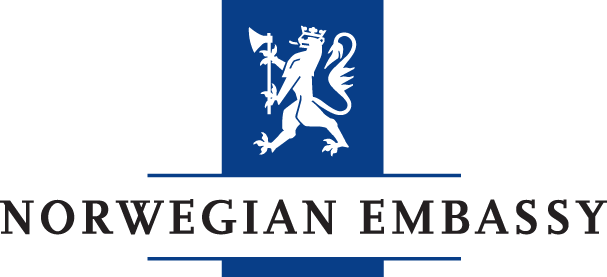 |
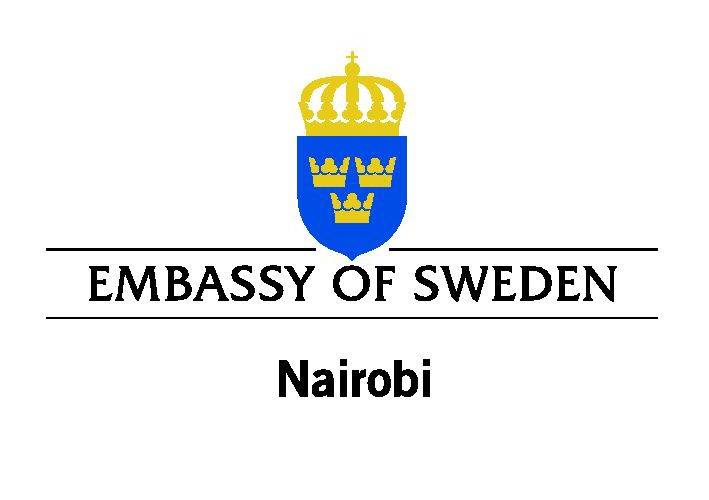 |
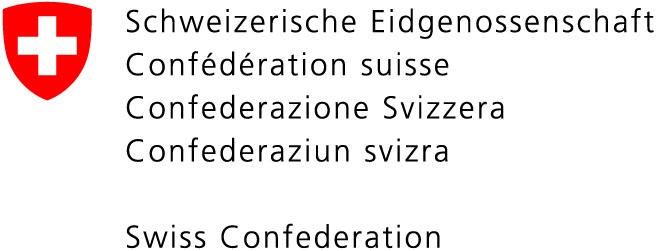 |
